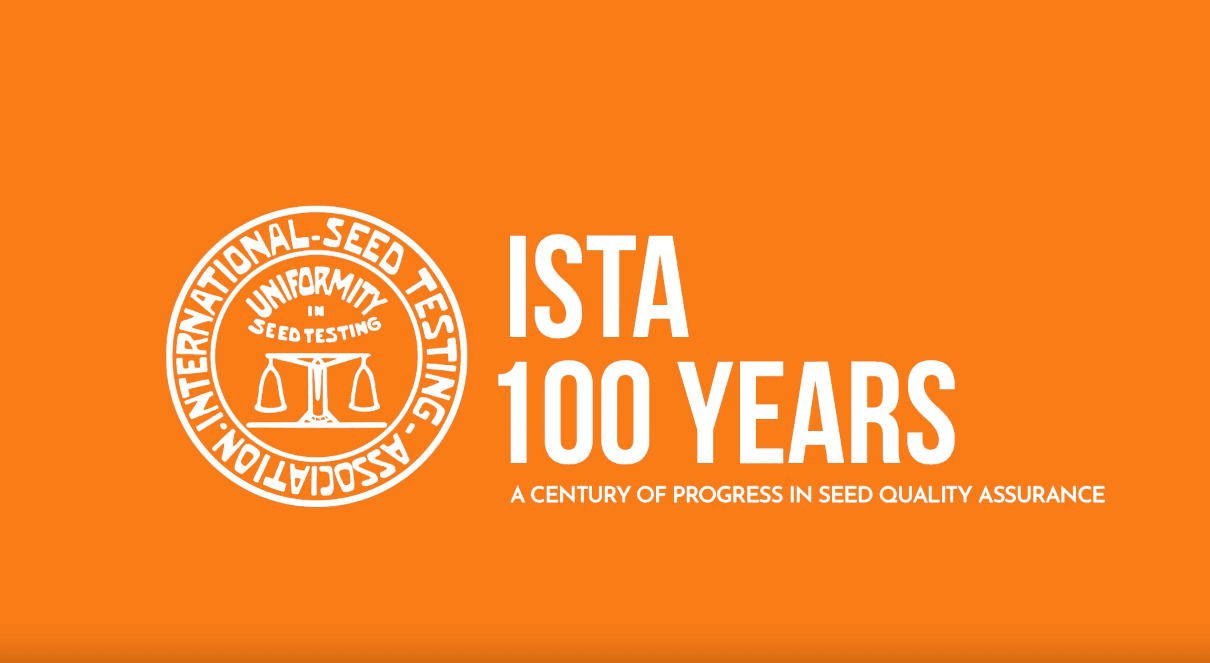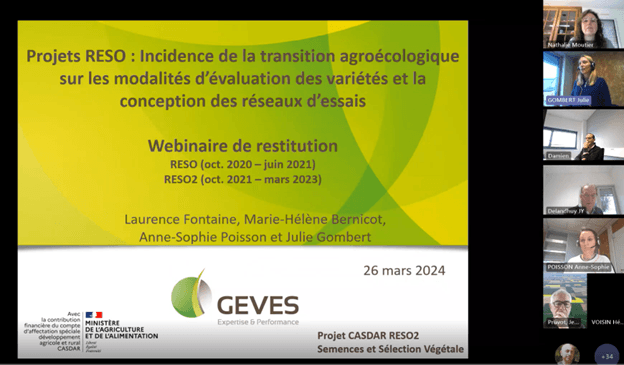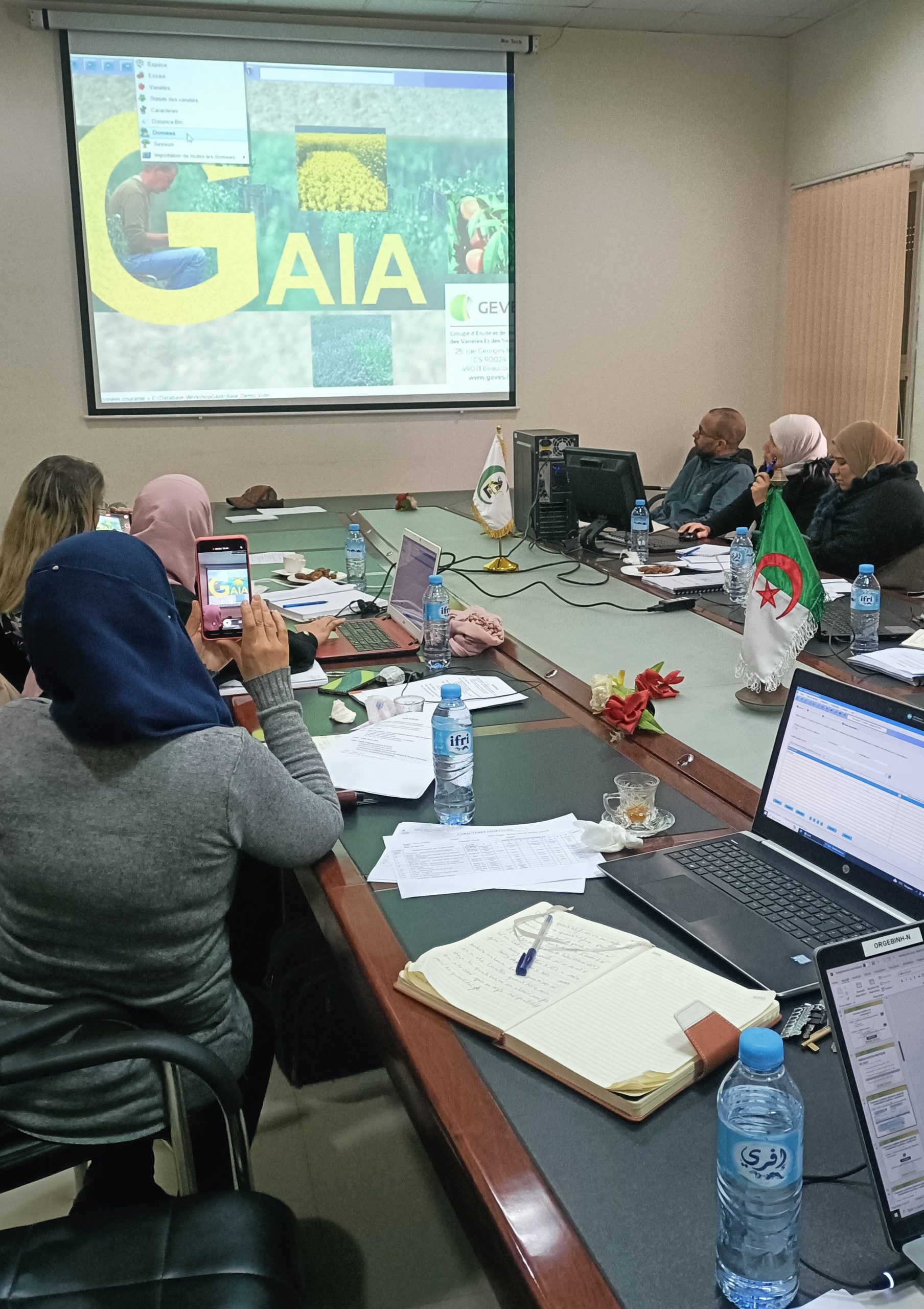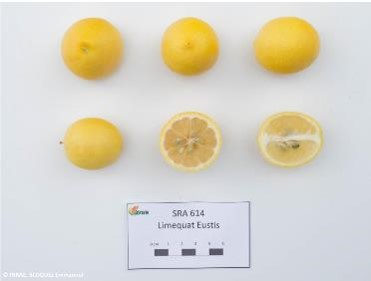
First conference for stakeholders involved in conservation and promotion of cultivated plant genetic resources and their crop wild relatives
On 29 November 2018, a little over a hundred people came together to discuss issues related to the management and promotion of PGRs, to meet with other stakeholders, and to learn about the national and international legislative and regulatory framework. A diversity of stakeholders were present with regard to the type of structures represented, the species conserved, and the activities developed.
The day was opened with a speech by Mrs Anne-Cécile COTILLON, Deputy Director of Quality, Health and Plant Protection at the Ministry of Agriculture and Food.
The day was then structured around different areas: three themes addressed in the form of round tables, testimony from a stakeholder selected through the calls for applications and the presentation of the survey carried out prior to the day. Times for discussion and exchange also featured throughout the day.
The first round table “Coordinating the conservation of plant genetic resources in France in an international context” began with a general presentation of the regulations in France and the various existing instruments at international level, by representatives of the Ministry of Agriculture and Food, so that all participants had a common information base. The Chair of the PGR CTPS Section presented the challenges faced by actors involved in the management and development of PGRs. The members of the National Coordination Structure then presented the organisation in France as well as the first activities developed since 2016. This includes in particular orphan species, which are important to France and whose resource conservation is not ensured in the long term.
The second key event, the round table “Stakeholders involved in conservation: experience feedback”, allowed collection managers representing a diversity of stakeholders (research institute, federation, regional centre, association, breeder) to present the objectives that led them to establish and manage a collection of plant genetic resources, and also to present possible management improvement points and their expectations regarding the National Coordination Structure.
We followed with a testimony from the Fédération viticole du Puy-de-Dôme on the renewal of a vine conservatory orchard preserving a clonal diversity of nearly fifteen grape varieties. They were awarded financial contribution through the “Funds for collection support” from the Ministry of Agriculture.
The fourth part of the day was devoted to a review of the survey conducted (electronically) prior to the day on the theme “possible improvements in the management, characterisation and promotion of plant genetic resources”. The results of the survey showed that respondents would like more information or reflection on topics such as: optimal conditions for conservation, regeneration of resources and new emerging methods such as cryopreservation. Characterisation is also a major issue, in particular with regard to accessibility to techniques (molecular analyses), descriptors or existing data for the various stakeholders. This last point reflects a significant need to improve data management systems for a large number of stakeholders and a demand for collective work on national level on this subject. Finally, the implementation of a quality approach and an explanation of the regulations is a common problem for a large number of respondents.
Using the survey results, elements reported during the day and a satisfaction survey conducted at the end of the day, we will be identifying practical workshops to be set up in the coming year for collection managers.
The third and last round table of the day “Cross views on characterisation of plant genetic resources” focused on the different ways of describing PGRs according to the required objectives. Different stakeholders representing very different backgrounds (research institute, national conservatory, genetic resources centre, association and seed company) presented in turn their activities and their visions on the descriptions necessary for the good knowledge and valuation of PGRs.
Following this round table, Mr Sélim Louafi of CIRAD stressed, in his presentation, the importance of integrating the stakeholders’ knowledge and social diversity to move from the biological entity to the social and political entity of PGRs. This reflection must especially take account of issues of equity regarding access to methods and data for the valuation of PGR.
Mr Alain Moulinier, Chairman of the CTPS and Deputy Chairman of the general council for agriculture and food and rural areas, closed the day by summarising the key elements resulting from the round table discussions or with the audience.
This first conference was well received by the participants, both the diversity of people present and the round tables. For future editions, participants wish to have more time for informal and small group discussions in order to encourage exchanges between stakeholders and foster concrete proposals. The possibility of inserting technical days between the stakeholders’ days is welcomed by the participants in order to meet their needs as closely as possible.
A report of the meeting and discussions will soon be available.





